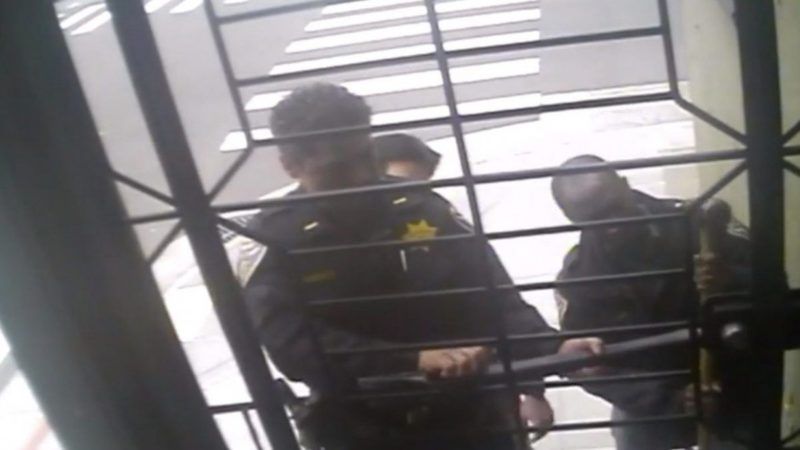San Francisco Police Were Ordered To Turn Off Body Cameras in Raid on Journalist's Home
Their illegal search was not recorded.

When San Francisco police raided journalist Bryan Carmody's home last year, in a misguided (and illegal) search attempting to track down a leaker, none of the event was captured on police body camera.
This turns out to be by design. A newly released memo reveals that a lieutenant with the investigative services detail specifically told police at the scene, following a captain's orders, that officers were not to use their body cameras for the operation. The only explanation provided in the two-paragraph memo was that the "footage could compromise the investigation."
The Reporters Committee for Freedom of the Press acquired the memo through a public records request, but it got no explanation as to why or how recording the administration of a search warrant could compromise the probe. Instead, a spokesperson for the San Francisco Police Department (SFPD) told the organization he couldn't provide any more detail because of "pending administrative investigations."
SFPD officers searched Carmody's home in May 2019 (using a sledgehammer to gain entrance) because they were trying to track down who had leaked to him a police report with embarrassing details surrounding the death of San Francisco Public Defender Jeff Adachi. Because of the contentious relationship between Adachi and the police department, it's possible that somebody within the police department might have leaked the report to posthumously make Adachi look bad.
California has shield laws protecting journalists from being forced to reveal confidential sources. The search warrant was subsequently declared illegal by a San Francisco Superior Court judge, and the city eventually agreed to pay Carmody $369,000 for its behavior.
Body cameras, when properly and carefully implemented, are helpful tools for police transparency and accountability. But they're used inconsistently. Sometimes officers individually decide to turn them off, but here we see leaders purposefully ordering police not to record an investigation. That's a problem.


Show Comments (64)